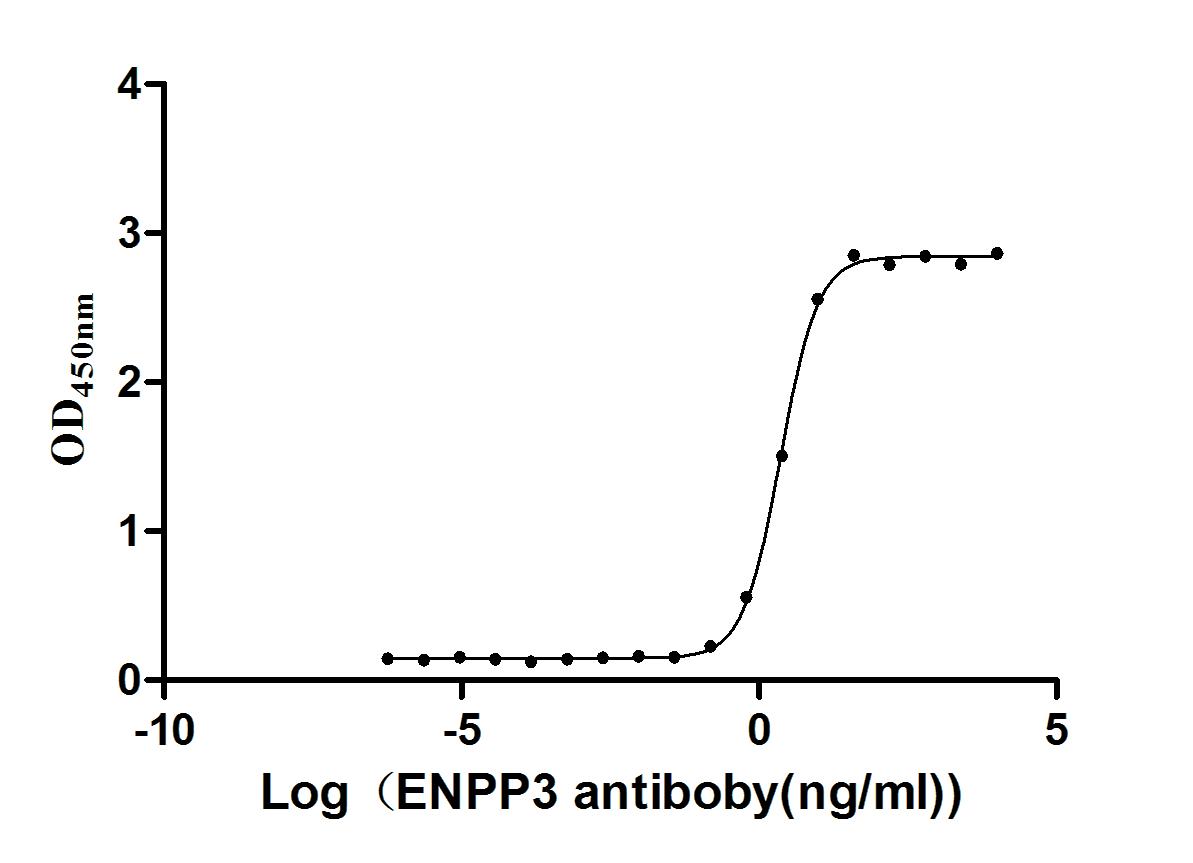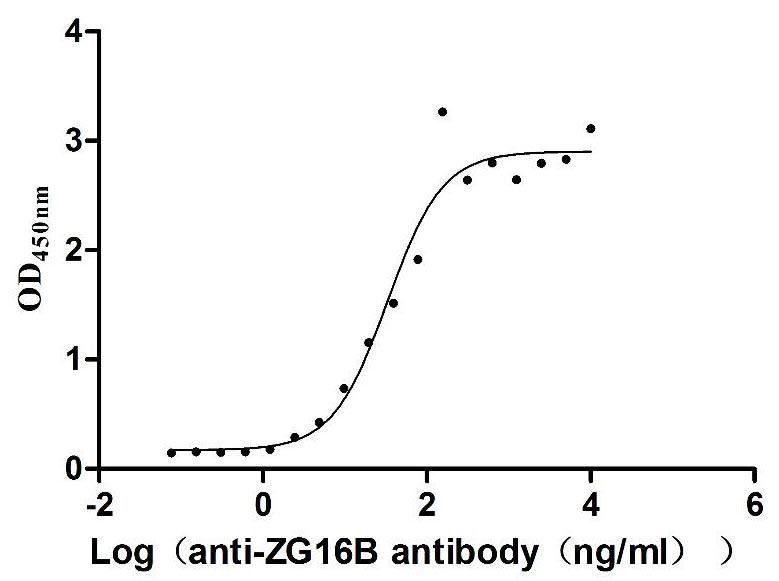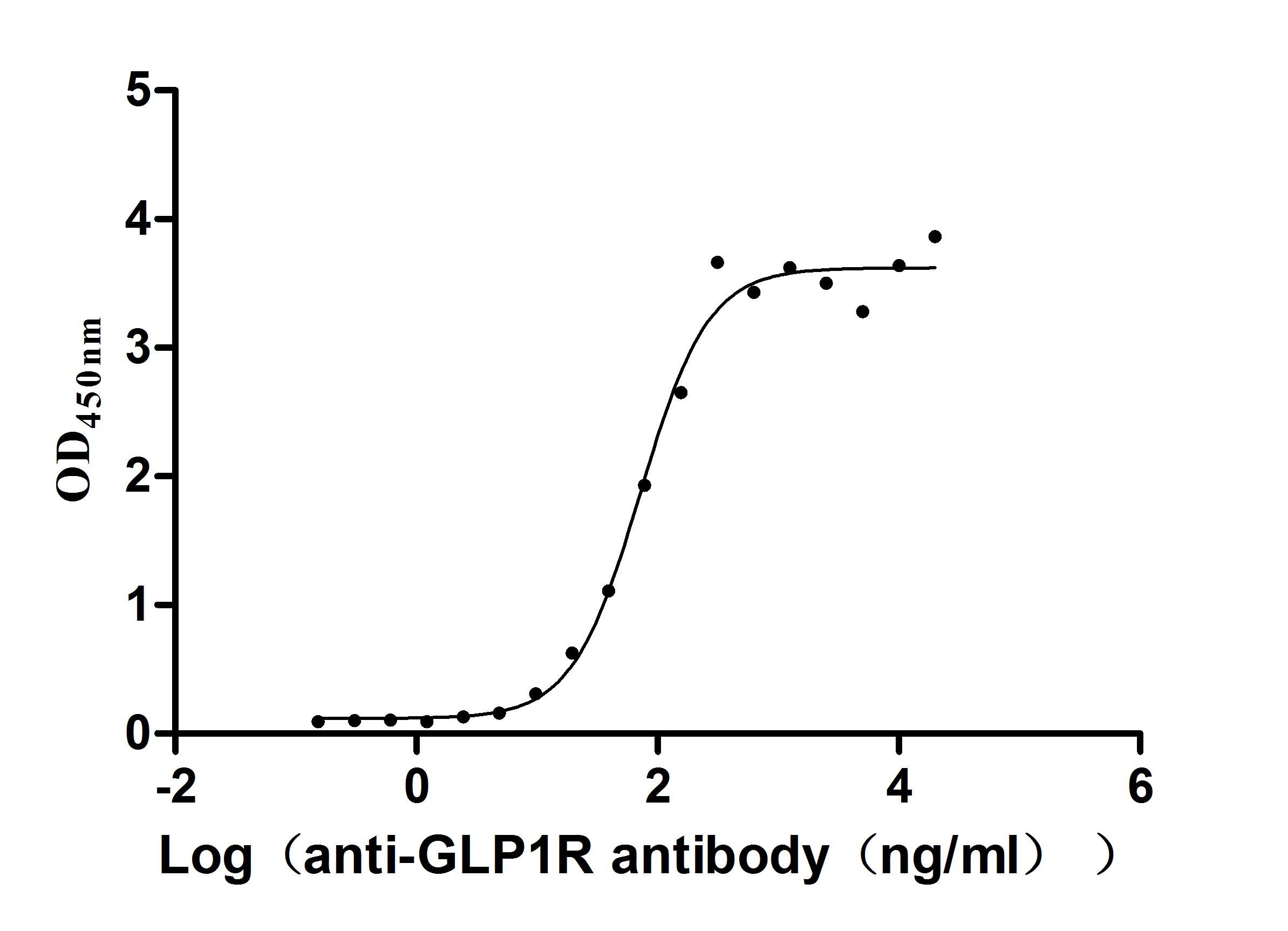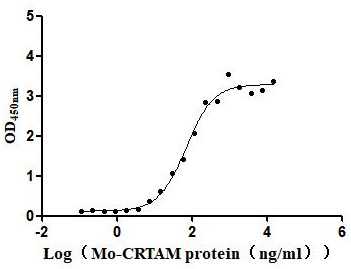Recombinant Human Phosphatidylinositol 3,4,5-trisphosphate 5-phosphatase 1 (INPP5D), partial
-
中文名称:人INPP5D重组蛋白
-
货号:CSB-YP842163HU
-
规格:
-
来源:Yeast
-
其他:
-
中文名称:人INPP5D重组蛋白
-
货号:CSB-EP842163HU
-
规格:
-
来源:E.coli
-
其他:
-
中文名称:人INPP5D重组蛋白
-
货号:CSB-EP842163HU-B
-
规格:
-
来源:E.coli
-
共轭:Avi-tag Biotinylated
E. coli biotin ligase (BirA) is highly specific in covalently attaching biotin to the 15 amino acid AviTag peptide. This recombinant protein was biotinylated in vivo by AviTag-BirA technology, which method is BriA catalyzes amide linkage between the biotin and the specific lysine of the AviTag.
-
其他:
-
中文名称:人INPP5D重组蛋白
-
货号:CSB-BP842163HU
-
规格:
-
来源:Baculovirus
-
其他:
-
中文名称:人INPP5D重组蛋白
-
货号:CSB-MP842163HU
-
规格:
-
来源:Mammalian cell
-
其他:
产品详情
-
纯度:>85% (SDS-PAGE)
-
基因名:
-
Uniprot No.:
-
别名:Inositol polyphosphate 5 phosphatase of 145kDa; 4; 5-trisphosphate 5-phosphatase 1; hp51CN; Inositol polyphosphate 5 phosphatase 145kDa; Inositol polyphosphate 5 phosphatase; Inositol polyphosphate-5-phosphatase of 145 kDa; INPP5D; MGC104855; MGC142140; MGC142142; p150Ship; Phosphatidylinositol 3,4,5 trisphosphate 5 phosphatase 1; Phosphatidylinositol-3; SH2 containing inositol phosphatase isoform b; SH2 domain containing inositol 5' phosphatase 1; SH2 domain containing inositol phosphatase 1; SH2 domain-containing inositol phosphatase 1; SH2 domain-containing inositol-5''-phosphatase 1; SHIP; SHIP-1; SHIP1; SHIP1_HUMAN; Signaling inositol polyphosphate 5 phosphatase SIP 145; SIP-145; SIP145
-
种属:Homo sapiens (Human)
-
蛋白长度:Partial
-
蛋白标签:Tag type will be determined during the manufacturing process.
The tag type will be determined during production process. If you have specified tag type, please tell us and we will develop the specified tag preferentially. -
产品提供形式:Lyophilized powder
Note: We will preferentially ship the format that we have in stock, however, if you have any special requirement for the format, please remark your requirement when placing the order, we will prepare according to your demand. -
复溶:We recommend that this vial be briefly centrifuged prior to opening to bring the contents to the bottom. Please reconstitute protein in deionized sterile water to a concentration of 0.1-1.0 mg/mL.We recommend to add 5-50% of glycerol (final concentration) and aliquot for long-term storage at -20℃/-80℃. Our default final concentration of glycerol is 50%. Customers could use it as reference.
-
储存条件:Store at -20°C/-80°C upon receipt, aliquoting is necessary for mutiple use. Avoid repeated freeze-thaw cycles.
-
保质期:The shelf life is related to many factors, storage state, buffer ingredients, storage temperature and the stability of the protein itself.
Generally, the shelf life of liquid form is 6 months at -20°C/-80°C. The shelf life of lyophilized form is 12 months at -20°C/-80°C. -
货期:Delivery time may differ from different purchasing way or location, please kindly consult your local distributors for specific delivery time.Note: All of our proteins are default shipped with normal blue ice packs, if you request to ship with dry ice, please communicate with us in advance and extra fees will be charged.
-
注意事项:Repeated freezing and thawing is not recommended. Store working aliquots at 4°C for up to one week.
-
Datasheet :Please contact us to get it.
相关产品
靶点详情
-
功能:Phosphatidylinositol (PtdIns) phosphatase that specifically hydrolyzes the 5-phosphate of phosphatidylinositol-3,4,5-trisphosphate (PtdIns(3,4,5)P3) to produce PtdIns(3,4)P2, thereby negatively regulating the PI3K (phosphoinositide 3-kinase) pathways. Able also to hydrolyzes the 5-phosphate of phosphatidylinositol-4,5-bisphosphate (PtdIns(4,5)P3) and inositol 1,3,4,5-tetrakisphosphate. Acts as a negative regulator of B-cell antigen receptor signaling. Mediates signaling from the FC-gamma-RIIB receptor (FCGR2B), playing a central role in terminat...显示更多
-
基因功能参考文献:
- Overall evidence did not indicate that inositol polyphosphate-5-phosphatase (INPP5D) rs35349669 single nucleotide polymorphism play a role in the genetic predisposition to late-onset Alzheimer's disease (LOAD) in Chinese population. PMID: 27750211
- JARID1B directly bound to PI3K/AKT signaling inhibitor SHIP1 gene promoter and decreased SHIP1 gene expression. PMID: 27584795
- Study shows that SHIP1 activity is decreased in adult Crohn's disease (CD) patients either through reduced intrinsic enxymatic activity or reduced protein expression, and propose that in addition to ATG16L1, SHIP1 may contribute to the risk conferred by the 2q37 CD risk locus. PMID: 28767696
- results indicate that FcgammaRIIB is not uniquely able to promote membrane recruitment of SHIP, but rather modulates its function via formation of distinct signaling complexes. Membrane recruitment of SHIP via Syk-dependent mechanisms may be an important factor modulating immunoreceptor signaling. PMID: 27456487
- SHIP has a role in extracellular matrix accumulation via suppressing PI3K/Akt/CTGF signaling in diabetic kidney dise PMID: 27965087
- Loss of SHIP promotes lung inflammation and mammary tumor metastasis. PMID: 26683227
- SHIP levels and activity are lower in intestinal tissues and peripheral blood samples from patients with Crohn's disease, resulting in induction of Il1-beta. PMID: 26481854
- Underexpression of SHIP1 is associated with drug resistance in acute myeloid leukemia. PMID: 25971362
- ectopically expressed SHIP1 accumulates in nucleolar cavities and colocalizes with the tumor suppressor protein p53. PMID: 25723258
- Results show that expression of SHIP1 protein is targeted by miR-155 in acute myeloid leukemia (AML) suggesting it as an onco-miR. The miR-155/SHIP1/PI3K/AKT signaling pathway could play an important role in the pathogenesis of AML. PMID: 25175984
- Overexpression of miR-155 in the gouty synovial fluid mononuclear cells leads to suppress SHIP-1 levels and enhance proinflammatory cytokines. PMID: 24708712
- SLAMF7-triggered inhibition is mediated by a mechanism involving Src kinases, CD45, and SHIP-1 that is defective in MM cells PMID: 25312647
- The discovery and replication studies presented here show SHIP-1 to be a risk marker for acute ischemic stroke in the Chinese population, which appears to be a novel finding. PMID: 24352714
- High ship1 expression is associated with chronic lymphocytic leukemia. PMID: 24914134
- Tks5 is needed for breast carcinoma cell invadopodium precursor stabilization, where the phox homology (PX) domain of Tks5 interacts with PI(3,4)P2. SHIP2 arrival at the invadopodium precursor coincides with the onset of PI(3,4)P2 accumulation. PMID: 24206842
- Based on these observations, authors conclude that miR-155 modulates the neuroinflammatory response during Japanese encephalitis virus infection via negative regulation of SHIP1 expression. PMID: 24522920
- SHIP1 silencing opposes TIGIT/PVR-mediated inhibitory signaling and restores cytotoxicity of YTS cells. PMID: 23154388
- Mutation in the PxxP domain of SHIP affects cell migration and invasion ability of K562 cells through increased MMP-9 expression, FAK phosphorylation and NF-kappaB activation. PMID: 22575191
- inositol phosphatase SHIP-1 inhibits NOD2-induced NF-kappaB activation by disturbing the interaction of XIAP with RIP2 PMID: 22815893
- SHIP1 mutant P1039S which does not reduce PI3K/AKT signaling anymore is located in a PXXP SH3 domain consensus binding motif. PMID: 22820502
- data suggest that miR-155 and miR-210/SHIP-1/Akt pathways could serve as clinical biomarkers for disease progression, and that miR-155 and miR-210 might serve as novel therapeutic targets in myelodysplastic syndromes. PMID: 22249254
- The CD2AP/SHIP1 complex and Cbl are recruited to blood dendritic cell (DC) antigen 2 (BDCA2) and Fc fragment of IgE high affinity I receptor (FcepsilonR1)gamma complex after BDCA2 cross-linking in human primary plasmacytoid DCs. PMID: 22706086
- The identification of SHIP1 as a nuclear inositol 5 phosphatase adds another member of the phosphoinositide and inositol modulating molecules to the emerging network of inositide signaling in the nucleus. PMID: 21864674
- indentification of LyGDI as a binding partner of SHIP, associating inducibly with the SHIP/Grb2/Shc complex PMID: 21695085
- Actin polymerization, F-actin accumulation, and Wiskott-Aldrich symptom protein phosphorylation are enhanced in SHIP-1-deficient B cells in a Bruton's tyrosine kinase (Btk)-dependent manner. PMID: 21622861
- Data suggest that SHIP-1 might regulate changes in the cytoskeleton. PMID: 21402888
- wtSHIP gene can down-regulate Akt phosphorylation and up-regulate cell cycle related proteins in K562 cells. PMID: 19954644
- This review summarizes how SHIP participates in normal immune physiology or the pathologies that result when SHIP is mutated. SHIP can have either inhibitory or activating roles in cell signaling. PMID: 21155837
- miR-155 led to down-regulation of SHIP, showing that it specifically targets the SHIP 3'untraslated regions. PMID: 20041145
- The novel platelet adapter Dok-3 and the structurally related Dok-1 are tyrosine phosphorylated in an Src kinase-independent manner downstream of alphaIIbbeta3 in human platelets, leading to an interaction with SHIP-1. PMID: 19682241
- In B cell lymphoma, elevated levels of miR-155, and consequent diminished SHIP1 expression are the result of autocrine stimulation by TNFalpha. PMID: 19890474
- implicated as regulator of histamine release in basophils PMID: 11692111
- SHIP localization to membrane receptors and subsequent activation along with the observed inability of SHIP -/- neutrophils to exhibit enhanced apoptosis with the stimulus combination. PMID: 11724799
- Association of SHIP with releasability in human basophils. PMID: 12217402
- data demonstrate that CD16 engagement on NK cells induces membrane targeting and activation of SHIP-1, which acts as negative regulator of antibody-dependent cellular cytotoxicity function PMID: 12393695
- SHIP-1 contributes to degradation of phosphatidylinositol trisphosphate (PI(3,4,5)P3) in T cells and thus influences signaling away from PI(3,4,5)P3-dependent effectors toward effectors that are exclusively driven by phosphatidylinositol 3,4-bisphosphate. PMID: 12421919
- SHIP expression appears to be differently altered in the early and late stages of differentiation of BCR-ABL-transformed cells PMID: 12829595
- SHIP-1 and Lyn have roles in the negative regulation of M-CSF-R-induced Akt activation PMID: 12882960
- SHIP positively, rather than negatively, regulates in vitro membrane recruitment of pleckstrin homology domain-containing signaling proteins Bam32 and TAPP2, which therefore specify a distinct wave of phosphatidylinositol 3-kinase signaling in B cells. PMID: 14688341
- SHIP1 and Lyn have roles as negative regulators of integrin alpha(IIb)beta(3) adhesive and signaling function PMID: 15166241
- SHIP1 and SHIP2 interact preferentially with Tec and inactivate it by de-phosphorylation of local PtdIns 3,4,5-P(3) and inhibition of Tec membrane localization PMID: 15492005
- SHIP1 negatively regulates monokine-induced NK cell IFN-gamma production in vitro and in vivo and provide the first molecular explanation for an important functional distinction observed between CD56bright and CD56dim human NK subsets. PMID: 15604218
- SHIP has a negative regulatory role in TLR2-induced neutrophil activation and in the development of related in vivo neutrophil-dependent inflammatory processes, such as acute lung injury in transgenic mice. PMID: 15944314
- Heterologous activation of SHIP by non-G-protein-coupled receptor-mediated routes can impinge on PI3K-dependent signaling pathways activated by independently ligated G-protein-coupled chemokine receptors. PMID: 16038794
- SHIP1 is necessary for FcgammaRIIB to negatively regulate B cell activation. PMID: 16406061
- Upregulated in oral mucosa during chronic periodontitis compared to its level during gingival health. PMID: 16428799
- Study showed H2O2-induced IKK activation in leukemic cells is mediated by SHIP-1; Jurkat cells expressing SHIP-1 are more resistant to H2O2-induced apoptosis than parental cells, suggesting SHIP-1 has an important role in leukemic cell responses to ROS PMID: 16619039
- Our results indicate that SHIP1 is involved, in a Src kinase-dependent manner, in the early signaling events observed upon the cross-linking of CD32a in human neutrophils. PMID: 16682172
- SHIP phosphorylation in stimulated human basophils undergoes modest nonspecific desensitization that persists despite dissociation of the desensitizing antigen, resulting in an immunologic memory of prior stimulation. PMID: 16818760
- SHIP1 not only acts as a negative player in T-cell lines proliferation, but also regulates critical pathways, such as NF-kappaB (nuclear factor kappaB) activation. PMID: 17371259
收起更多
-
亚细胞定位:Cytoplasm. Cell membrane; Peripheral membrane protein. Membrane raft. Cytoplasm, cytoskeleton. Membrane; Peripheral membrane protein.
-
蛋白家族:Inositol 1,4,5-trisphosphate 5-phosphatase family
-
组织特异性:Specifically expressed in immune and hematopoietic cells. Expressed in bone marrow and blood cells. Levels vary considerably within this compartment. Present in at least 74% of immature CD34+ cells, whereas within the more mature population of CD33+ cells
-
数据库链接:





-AC1.jpg)













